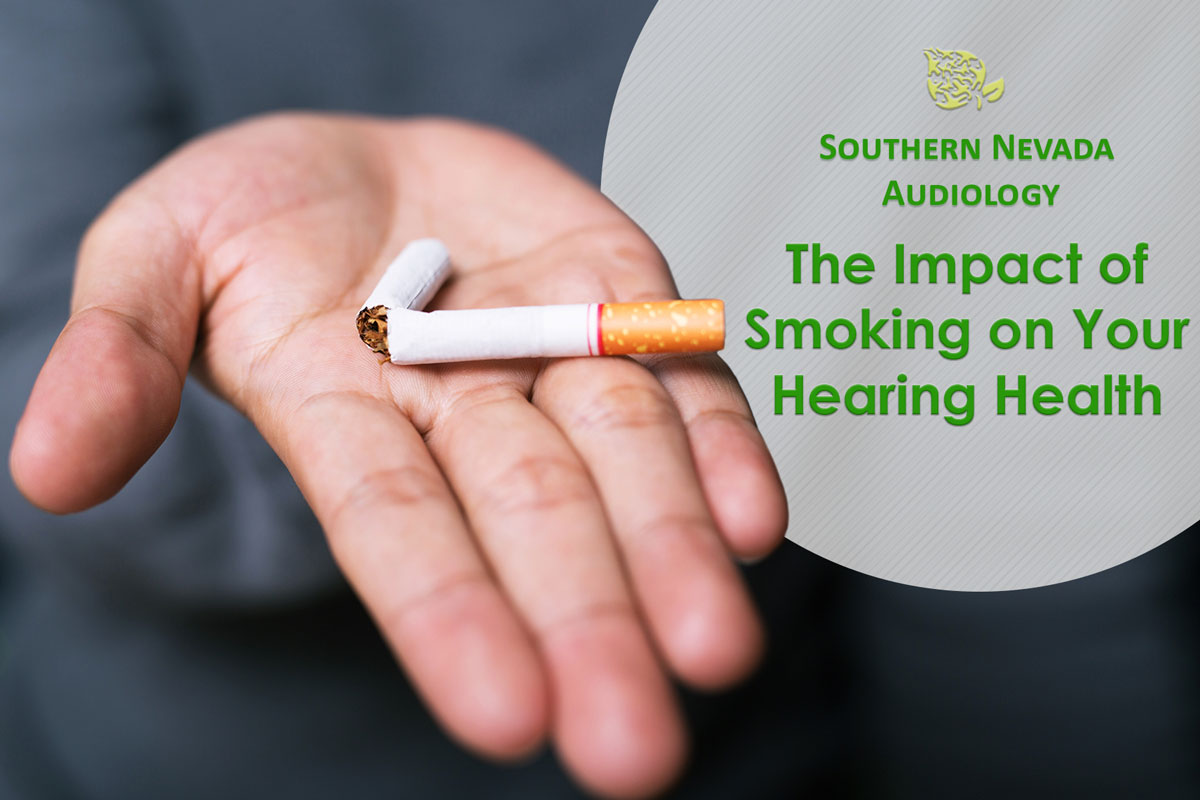As the new year unfolds, it’s a time of inspiration for many to embrace resolutions and lifestyle changes aimed at better health. Quitting smoking is one of the most popular New Year’s resolutions. While both smoking and hearing loss present significant health challenges, there’s a notable distinction: smoking is a self-induced risk, whereas hearing loss can often occur naturally.
But how exactly does smoking relate to hearing loss?
The connection is indirect yet significant. The habit of smoking exacerbates hearing problems. Each cigarette smoked can progressively impair hearing.
We aim to provide insight into how smoking influences not only your lung health but also your hearing abilities, affecting both your personal health and the well-being of those close to you.
Smoking and Its Impact on Hearing Loss
It’s widely acknowledged that smoking is detrimental to health, a warning often prominently displayed on cigarette packs.
Research indicates that around 60% of smokers worldwide are more likely to experience hearing loss. The reason behind this is the presence of nicotine in cigarettes, a chemical that compromises our immunity and overall health. Nicotine impacts various parts of the body, including the hair, nose, lungs, ears, and neck. Given the ear’s role in hearing, it’s clear that smoking indirectly contributes to hearing loss.
Furthermore, cigarettes contain other harmful chemicals like cyanide and nitrogen. These substances are not only harmful to general health but also adversely affect our ears. The ears, being sensitive organs, are particularly susceptible to damage from these chemicals.
Effects of Smoking on Ear Health
Smoking can lead to several ear-related issues, including:
- Tinnitus: Nicotine can cause dizziness and is linked to tinnitus (ringing in the ear). Dizziness often reflects a form of weakness, and in the case of the ears, this can manifest as tinnitus. While further research is necessary, existing evidence strongly suggests a connection between smoking and tinnitus.
- Noise-Induced Hearing Loss: Smokers have an increased sensitivity to loud noises, making them more susceptible to noise-induced hearing loss. The harmful components in cigarettes, such as nicotine and tobacco, contribute to this heightened vulnerability.
- Ototoxic Effects: Cigarettes contain ototoxic chemicals that are harmful to the ears. Smoking introduces these dangerous substances into the bloodstream, adversely affecting hearing abilities.
- DNA Damage: Smoking can lead to the production of free radicals that harm cellular DNA, potentially causing cancer. Chemicals like hydrogen peroxide and hydroquinone from cigarettes can interfere with DNA function, leading to damaging effects on cells, including those in the lungs.
- Auditory Nerve Interference: Nicotine and other components in cigarettes can disrupt the neurotransmitters of the auditory nerve, responsible for conveying sound information to the brain. This interference can impair the ability to correctly identify and understand sounds.
- Middle Ear Infection (Ear Pain): Smoking can cause middle ear infections, leading to pain in the ear. This condition, also known as otitis media, arises when the eustachian tube, which connects the throat to the space behind the eardrum, gets blocked. In smokers, substances like nicotine and carbon monoxide can obstruct this tube, leading to significant ear pain. This issue is particularly common in children and can be exacerbated by exposure to smoke.
Steps to Protect Your Hearing from Smoking-Related Damage
- Cease Smoking Promptly: To minimize further harm to your ears, quitting smoking as soon as possible is key. It’s important for people to understand that smoking can lead to hearing loss.
- Promote Awareness: Organize and participate in community awareness programs to educate about the negative effects of smoking on hearing.
- Avoid Nicotine-Containing Products: Since nicotine is linked to hearing loss, it’s essential to steer clear of products that contain it. This includes alternatives like bidis, gutkha, cigars, and hookahs, which also contain harmful substances like tobacco and carbon, damaging both your overall health and your ears.
- Pay Attention to Children’s Ear Health: Ear pain is common in children and adolescents. Parents should take any signs of ear pain seriously to prevent potential damage to their children’s hearing abilities.
Encouraging News for Smokers
For those who smoke, remember it’s never too late to quit. Research shows that quitting smoking can significantly improve your hearing capabilities. While smoking has a negative impact on hearing, reversing this habit can lead to positive changes in your hearing health.
Please schedule your hearing assessment / checkup with Southern Nevada Audiology today! Learn more about the advancements in modern hearing aids.

